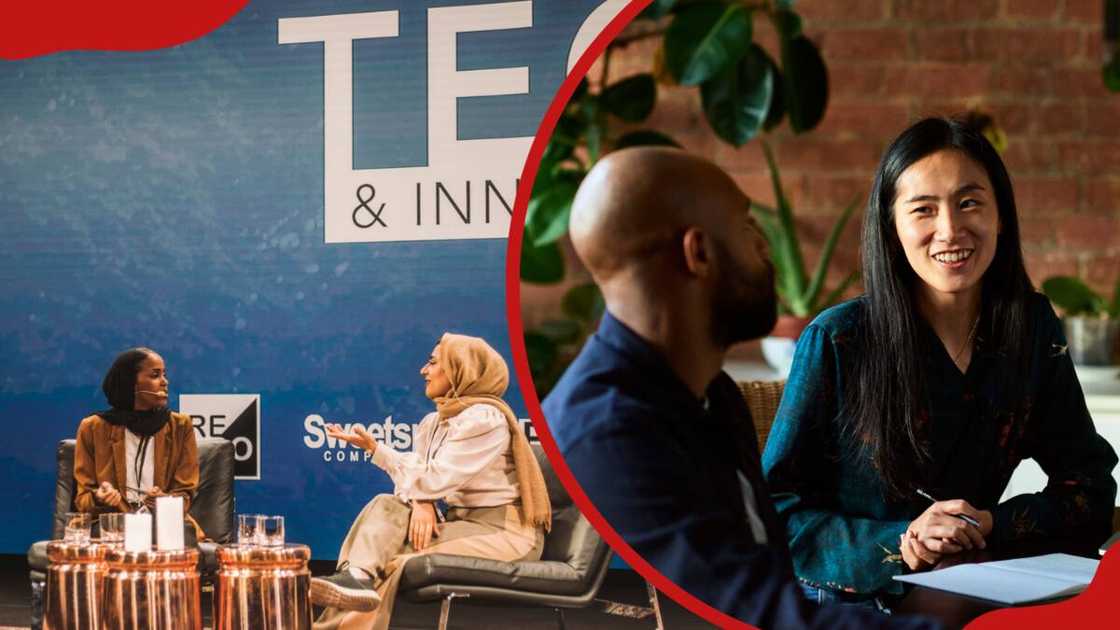In today’s competitive landscape and constrained job market, standing out among fellow applicants is crucial to landing a position. Both your present abilities and potential for development play key roles in distinguishing yourself. However, once you ace the initial interview and progress to the next round, does securing a second interview indicate positive prospects?

After a potential candidate successfully completes the initial interview, they proceed to a secondary round of questioning. This follow-up discussion usually occurs in person at the location of the organization. Additionally, these subsequent meetings tend to be more extended compared to the first one, often stretching over several hours up to an entire day.
How does the first interview differ from the second one?
The initial interview narrows down numerous applicants who satisfy the fundamental criteria. Conversely, a subsequent interview delves further into several candidates. Prior to participating in the second round of interviews, consider reflecting and assessing whether:
- Are you interested in working there?
- Is the organization providing the suitable atmosphere for advancing your career?
- Did you ask all the necessary questions during your initial interview?
Does a second interview indicate positive progress?
Certainly. Receiving a second interview signifies that the organization views you as a potential fit for their ongoing vacancy. This suggests they are giving serious thought to offering you the role.
Hence, to land the position, you ought to prepare thoroughly by equipping yourself with all necessary second-round interview advice.
What to anticipate in a follow-up interview
Based on the role you're applying for and the company structure, a secondary interview might wrap up the hiring procedure. Nonetheless, it’s wise to stay grounded as this phase can also extend into further sessions with the employer.
When numerous individuals apply for a role, the chances of participating in multiple interviews increase because employers aim to gather additional details about potential hires. This process helps them identify the perfect fit for the open position.

As the number of candidates decreases, the number of interviewers usually increases. According to Forbes, during the second interview, you are likely to face interviews with higher-ranking personnel such as:
- Team members
- Senior leaders
- Human resource manager
- Hiring manager
Ways to Get Ready for a Second Interview
Effective preparation for a secondary interview is crucial for those aiming to land a job. It’s important to delve deeper into understanding the role, organization, and the person interviewing you. Below are several valuable suggestions for individuals getting ready for their follow-up meeting:
- Be confident and authentic
- Embrace the future
- Address any unresolved issues from the initial interview.
- Get ready for unconventional queries.
- Equip yourself with successful anecdotes from your previous position.
Possible inquiries for a follow-up interview
In the initial interview, most of the queries center around your abilities and background. During the subsequent session, the questions help employers picture you in the role. As stated by Indeed, these are the topics where you can anticipate being asked:
Your curiosity about the role and the organization
The interviewer may ask questions aimed at understanding your interest in both the role and their company, such as:
- What aspects of this position appeal to you?
- What aspects of this organization appeal to you?
- What makes you believe that your skills are suitable for this position?
- What attracts you more to this role?
Your strengths and weaknesses

To gain deeper insights into you, the interviewer might inquire about your strengths, weaknesses, and past accomplishments with queries like:
- What aspect of your previous role did you excel at the most?
- What were the toughest assignments in your former role?
- Describe a situation where you faced difficulties and explain how you dealt with it.
- What do you consider to be your primary area for improvement?
- What accomplishments make you feel the most accomplished?
Your relationships
Beyond assessing how efficiently you carry out your responsibilities, most companies will also be interested in understanding how well you interact with those around you. To gauge this aspect, interviewers may pose questions such as:
- How have you worked on establishing a positive rapport with your coworkers?
- Can you share an instance where you encountered a disagreement at work and how you handled it?
- Could you provide some instances of your interpersonal abilities?
- Which role would you rather assume when working with a group?
Your judgement
Several questions aimed at helping interviewers assess your judgment abilities may encompass:
- What steps did you take when requested to perform an unethical task?
- Share an instance where you faced a difficult choice and explain your approach to handling it.
Your expectations
In many instances, what you seek and desire from the role can be explored further through additional inquiries made during a follow-up interview. The types of questions you might anticipate include:
- What is the salary you anticipate earning?
- Are you most effective when working independently or collaboratively?
- Which do you favor more: a hybrid, remote, or office-based work model?
- Which elements of an organization's culture resonate with you the most?
- Where do you perform most effectively within different organizational cultures?
- What do you anticipate from the department head?
Your future
To assess your contributions and future potential within the firm, the organization will pose the following queries:
- What strategies will you use to build your trustworthiness during the initial six-month period?
- What are your expectations for where you'll be professionally after two years?
- What are your professional goals?
- What motivates you?

Queries to pose to the interviewer
During a second interview, there usually is more opportunity to pose additional queries compared to the initial meeting. Hence, you ought to prepare deeper inquiries aimed at gaining further insights into the role, company culture, and team dynamics.
As per Robert Half, some of the considerate and open-ended queries you could pose encompass:
- What aspect of your work with this company brings you the most satisfaction?
- Which management approaches have you included?
- What methods do you use to assess the performance of your staff members?
- What qualities define your idea of the perfect worker?
- What is the biggest obstacle you might face during your initial months at this job?
Frequently asked questions
- A second interview is the structured meeting held following the initial interview as part of the selection process.
- The primary distinction between the initial and subsequent interviews is that the first one assesses numerous applicants, whereas the second interview focuses on shortlisting only a smaller number of potential candidates.
- During the second interview, what typically gets discussed usually involves questions on how you plan to integrate yourself into the company and the ways in which you intend to contribute to it.
- Does a second interview tend to be harder? During the second interview, the questions become more challenging as the interviewer delves deeper into your qualifications compared to the initial round.
- To ace a second interview, focus on gathering more information about the role, the company, and the person interviewing you.
- Is the duration of the second interview usually extended compared to the initial one? Generally, yes; it often extends over several hours up to an entire day.
- Who leads the second interview? Different companies have different preferences for who should conduct it. Nonetheless, participants might include team members, senior executives, representatives from human resources, or the hiring manager.
Final word
Yes, a second interview is indeed a positive indication. This suggests that you are under serious consideration for the position. You have an additional chance to demonstrate your suitability and impress them further. Consequently, ensure thorough preparation as these interviews often involve more detailed and targeted inquiries.
INSPIRATIONS DIGITAL.co.ke posted an article detailing tips on crafting a CV for an attachment application. Securing an internship or attachment can be daunting, especially without previous job experience. It’s essential to create a compelling attachment opportunity to build valuable skills and lay the foundation for your career ahead.
Many newly minted graduates and present-day students frequently look for guidance and frameworks on how to create a resume that stands out. Highlighting your academic credentials, relevant abilities, and additional accomplishments can showcase your value to prospective employers.


No comments:
Post a Comment